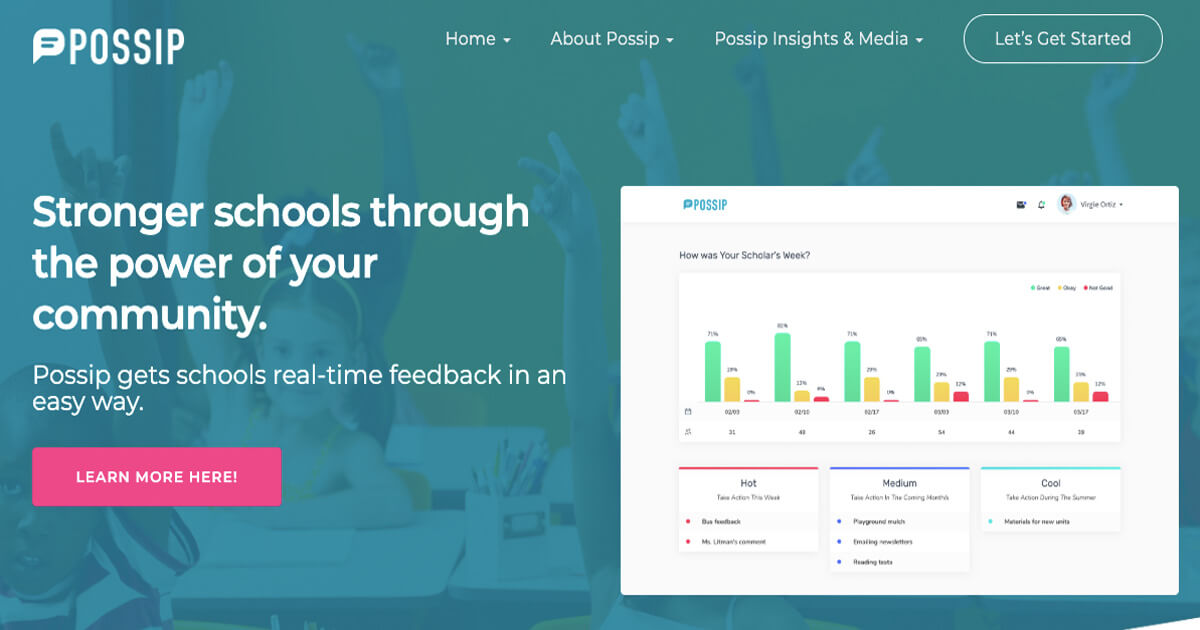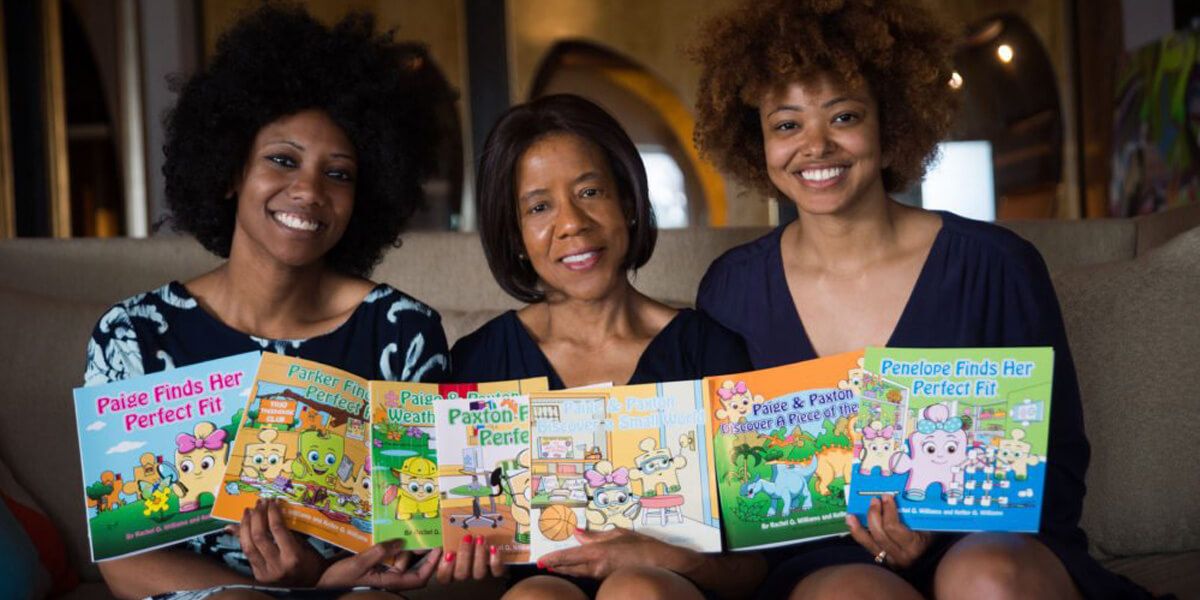As education technology expands in the classroom aimed to reduce the chasm between students who need additional instruction, and teachers who have too many pupils to warrant individual support, edtech to foster deeper relationships between parents and schools is on the rise. New tools now offer the ability for educators and administrators to directly connect with parents about everything from classroom grades and upcoming holidays to school emergencies and parent-teacher conferences.
Shani Dowell is the founder and CEO of Possip (positive gossip), an engagement tool that gives parents the opportunity to easily share feedback with their child’s school. Dowell made headlines when she closed over a $1 million round of funding for the feedback platform she launched in 2017. Possip got its start when, during a conversation with her husband who is an educator, Dowell learned that a parent at one of his schools was concerned with how their child had been reprimanded. A former teacher herself and mother of two school-aged children, Dowell became interested in how parents could deliver timely feedback to teachers and administrators about problems their students encountered during the school day.
Typically, when a parent has a problem they either have to call the school and hope to speak to someone directly or send an email that may never reach the intended teacher or administrator. To help alleviate that ongoing tension, Dowell created Possip as a way for parents to share feedback both good and bad with teachers and administrators.
In February 2017, after speaking with different principals in her area, Dowell piloted the first iteration of Possip at her children ‘s school. The genesis of Possip was fairly simple and involved Dowell, Survey Monkey, and a texting platform.
On Fridays, I would send out a text to parents encouraging them to share any feedback they had from the previous school week, Dowell says. Over the weekend, I would then create an engagement report with those responses, and deliver them on Monday to the school.
By fall 2017, Possip had partnered with five schools, and by spring 2018, the platform had been implemented at 30 schools. Before spending a bunch of money creating the technology or anything else, I asked myself, Could this be valuable? Do school parents even respond? Do they want to talk to the school in this way? Dowell says. What I found was that there were a lot of tools that pushed information to parents, but not anything that served as a channel for parents to share their constructive criticism and praise with the school in a systematic way.
PARENTS PREFER DIGITAL CONNECTION
According to a 2019 Columbia University study, when weekly, automated alerts were sent to parents about their child’s missed assignments, grades, and class absences, it reduced course failures by 28%, increased class attendance by 12%, and increased student retention. Digital correspondence like emails and text messages was found to be able to keep parents abreast of relevant issues, particularly for parents who may have a difficult time making face-to-face meetings with teachers due to work obligations or multiple children in different schools.
Apps like Ready Rosie, TalkingPoints, SimplyCircle, and ParentSquare were pre-existing platforms created to improve communication between a student’s school and home life, but Dowell wondered how effective these digital tools were in making parents feel more included in their child’s education.
During the early stages of Possip, she was still working full-time and self-funding much of the work for the platform. She also participated in a number of accelerators: Google For Startups Black Founder Exchange in Durham, North Carolina; the inaugural cohort of Founders Gym;Elevator, a social impact accelerator in Cincinnati, Ohio; and INFLIGHT, a program operated by the Nashville Entrepreneur Center.
By the middle of 2018, she decided to focus on Possip full-time and grew the platform’s network from 30 to 75 schools. Today, the platform, which lets parents share praise and feedback in multiple languages, has partnered with 105 five schools from Massachusetts to Hawaii. Possip also brings in revenue based on its partnership model with schools and school districts.
The schools or districts we are partnered with are considered our customers, and they’re the ones who pay for the product, Dowell says. Parents come on board with that school or district, and while they have the opportunity to opt out, most choose not to because of the opportunity to be in conversation with their child’s school.
CREATING A MORE INCLUSIVE EDUCATIONAL COMMUNITY
What makes Possip a particularly unique platform is that it offers prompts in different languages, eliminating a barrier to entry if a parent’s native tongue isn’t English. That prompt allows a parent to then respond in their native language and feel more confident and comfortable that their voice is going to be heard.
What we’ve seen is that Possip helps start a conversation between a parent and their child, Dowell says. Part of what the parent gets asked weekly on the platform is if they are happy with their child’s school. That question ultimately leads parents to then talk to their children about their thoughts and feelings on their learning environment.
One of the schools that started with Possip in its first year went from being in the bottom 5% of academic achievement in the state, to being named a reward school, which demonstrates the highest growth in the state. And while Possip hasn’t been around long enough to take credit for all of that success, Dowell is very proud that two more Possip schools were named reward schools in the state of Tennessee in 2019.
As Possip moves into the second half of the school year, Dowell hopes to develop more strategic partnerships that will benefit all parties involved. Additionally, she wants to continue to build upon the success she has from having direct communication with parents in order to incorporate more actionable, valuable content into the platform’s technology.
Right now, our platform for schools is a place where they can go and get their parent feedback, Dowell says, but we really see it developing as a place where they can develop community and also learn really quickly and take next steps really quickly through our platform.








